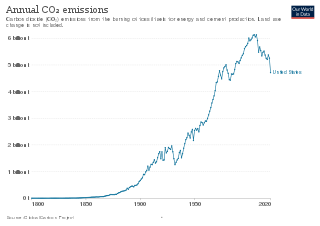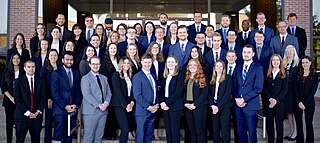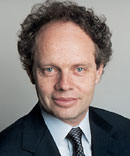Cost–benefit analysis (CBA),sometimes also called benefit–cost analysis,is a systematic approach to estimating the strengths and weaknesses of alternatives. It is used to determine options which provide the best approach to achieving benefits while preserving savings in,for example,transactions,activities,and functional business requirements. A CBA may be used to compare completed or potential courses of action,and to estimate or evaluate the value against the cost of a decision,project,or policy. It is commonly used to evaluate business or policy decisions,commercial transactions,and project investments. For example,the U.S. Securities and Exchange Commission must conduct cost-benefit analyses before instituting regulations or deregulations.

Enforcement is the proper execution of the process of ensuring compliance with laws,regulations,rules,standards,and social norms.
The Competitive Enterprise Institute (CEI) is a non-profit libertarian think tank founded by the political writer Fred L. Smith Jr. on March 9,1984,in Washington,D.C.,to advance principles of limited government,free enterprise,and individual liberty. CEI focuses on a number of regulatory policy issues,including business and finance,labor,technology and telecommunications,transportation,food and drug regulation,and energy and environment in which they have promoted climate change denial. Kent Lassman is the current President and CEO.

Stephen Fain Williams was a United States circuit judge of the United States Court of Appeals for the District of Columbia Circuit until his death from complications with COVID-19 on August 7,2020.

The New York University School of Law is the law school of New York University,a private research university in New York City. Established in 1835,it was the first law school established in New York City and is the oldest surviving law school in New York State and one of the oldest law schools in the United States. Located in Greenwich Village in Lower Manhattan,NYU Law grants J.D.,LL.M.,and J.S.D. degrees.
Government failure,in the context of public economics,is an economic inefficiency caused by a government intervention,if the inefficiency would not exist in a true free market. The costs of the government intervention are greater than the benefits provided. It can be viewed in contrast to a market failure,which is an economic inefficiency that results from the free market itself,and can potentially be corrected through government regulation. However,Government failure often arises from an attempt to solve market failure. The idea of government failure is associated with the policy argument that,even if particular markets may not meet the standard conditions of perfect competition required to ensure social optimality,government intervention may make matters worse rather than better.
Environmental policy is the commitment of an organization or government to the laws,regulations,and other policy mechanisms concerning environmental issues. These issues generally include air and water pollution,waste management,ecosystem management,maintenance of biodiversity,the management of natural resources,wildlife and endangered species. For example,concerning environmental policy,the implementation of an eco-energy-oriented policy at a global level to address the issues of global warming and climate changes could be addressed. Policies concerning energy or regulation of toxic substances including pesticides and many types of industrial waste are part of the topic of environmental policy. This policy can be deliberately taken to influence human activities and thereby prevent undesirable effects on the biophysical environment and natural resources,as well as to make sure that changes in the environment do not have unacceptable effects on humans.

Eric Andrew Posner is an American lawyer and legal scholar. As a law professor at the University of Chicago Law School,Posner has taught international law,contract law,and bankruptcy,among other areas. He is the son of retired Seventh Circuit Judge Richard Posner.
Daniel Julius Meltzer was an American lawyer and law professor who taught at Harvard Law School. He worked in the Obama Administration as Principal Deputy Counsel from January 2009 through June 1,2010.

Resources for the Future (RFF) is an American nonprofit organization,founded in 1952,that conducts independent research into environmental,energy,and natural resource issues,primarily via economics and other social sciences. Headquartered in Washington,D.C.,RFF performs research around the world.

The New York University Law Review is a bimonthly general law review covering legal scholarship in all areas,including legal theory and policy,environmental law,legal history,and international law. The journal was established in 1924 as a collaborative effort between law students and members of the local bar. Its first editor-in-chief was Paul D. Kaufman. Between 1924 and 1950,it was at various times known as the Annual Review of the Law School of New York University and the New York University Law Quarterly Review before obtaining its current name in 1950.
Sharyn O’Halloran is the Strategic Academic Leadership Initiative Professor of Political Economy at Trinity College Dublin and Trinity Professorial Fellow. In 2006 she was named the George Blumenthal Professor of Political Economics and International and Public Affairs at Columbia University in New York City.,where she served as the Senior Vice Dean and Chief Academic Officer at the School of Professional Studies at Columbia University in New York City.[1] A political scientist and economist by training,O’Halloran has written extensively on issues related to the political economy of international trade and finance,regulation and institutional reform,economic growth and democratic transitions,and the political representation of minorities.

The environmental policy of the United States is a federal governmental action to regulate activities that have an environmental impact in the United States. The goal of environmental policy is to protect the environment for future generations while interfering as little as possible with the efficiency of commerce or the liberty of the people and to limit inequity in who is burdened with environmental costs. As his first official act bringing in the 1970s,President Richard Nixon signed the U.S. National Environmental Policy Act (NEPA) into law on New Years Day,1970. Also in the same year,America began celebrating Earth Day,which has been called "the big bang of U.S. environmental politics,launching the country on a sweeping social learning curve about ecological management never before experienced or attempted in any other nation." NEPA established a comprehensive US national environmental policy and created the requirement to prepare an environmental impact statement for “major federal actions significantly affecting the quality of the environment.”Author and consultant Charles H. Eccleston has called NEPA the world's “environmental Magna Carta”.

Thomas W. Hazlett is the Hugh H. Macaulay Endowed Professor of Economics in the John E. Walker Department of Economics at Clemson University where he also directs the Information Economy Project.
The Yale Journal on Regulation (JREG) is a biannual student-edited law review covering regulatory and administrative law published at Yale Law School. The journal publishes articles,essays,notes,and commentaries that cover a wide range of topics in regulatory,corporate,administrative,international,and comparative law. According to the 2015 Washington and Lee University law journal rankings,the journal is ranked first in Administrative Law,in Corporations and Associations,in Commercial Law,in Communications Law,Media and Journalism,and in Health,Medicine,Psychology and Psychiatry. The 2007 ExpressO Guide to Top Law Reviews ranked the journal first among business law reviews based on the number of manuscripts received.
The Root-Tilden-Kern Scholarship is a full-tuition public service scholarship for students at New York University School of Law. It is widely considered to be the most prestigious public interest scholarship for law students in the United States.
Vicki L. Been is an American lawyer,public servant,and professor who served as the Deputy Mayor of New York City for Housing and Economic Development from April 2019 to December 2021. She previously served as commissioner of the New York City Department of Housing Preservation and Development. She is a law professor at the New York University School of Law and has served as director of the Furman Center for Real Estate and Urban Policy.
The Regulatory Review is an online,daily publication devoted to coverage of regulatory news,analysis,and commentary. It is produced under the auspices of the Penn Program on Regulation and operated by students at the University of Pennsylvania Law School. The Regulatory Review's content includes essays produced by the publication's staff members as well as regular contributions from scholars,public officials,attorneys,and others interested in regulatory developments.

The Michigan State Law Review is an American law review published by students at Michigan State University College of Law. By counting “flagship”journals not separately ranked by Washington &Lee School of Law in its Law Journal Rankings,Michigan State Law Review was the 63rd highest-ranked “flagship”print journal in 2022 with a score of 14.55 out of 100 and,per W&L Law,the 99th overall law journal,a dramatic increase from its ranking of 332rd in 2003. The journal hosts an annual academic conference of global legal experts with past events covering issues such as autonomous vehicles,quantitative legal analysis,civil rights,and intellectual property. Professor David Blankfein-Tabachnick has served as Faculty Advisor of the journal since his appointment in 2016. In 2018,the journal began publishing an annual "Visionary Article Series," which features the work of one prominent legal scholar per year.

The Institute for Policy Integrity is a non-partisan think tank housed within the New York University School of Law. Policy Integrity is dedicated to improving government decisionmaking,and its primary area of focus is climate and energy policy. Policy Integrity produces original scholarly research and advocates for reform before courts,legislatures,and executive agencies at both the federal and state level.










